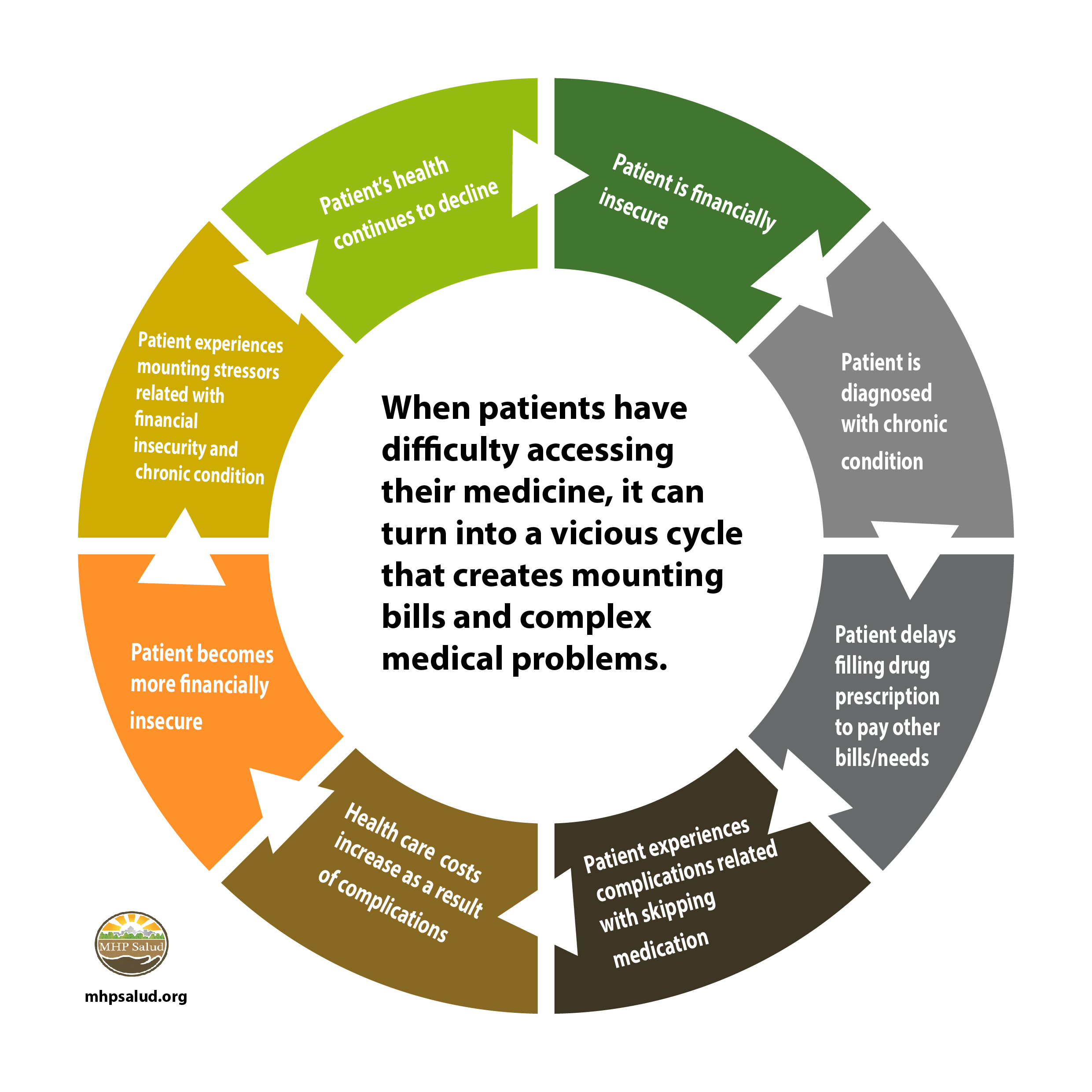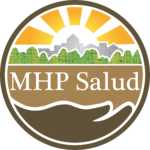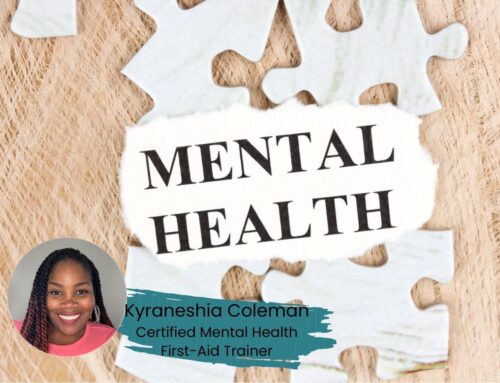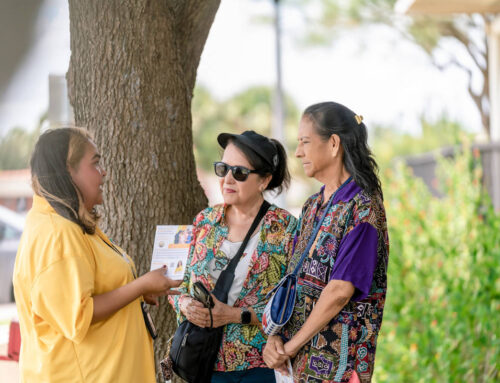Rising drug costs may lead to patients rationing or skipping their medicine. Community Health Workers can help.
March 2019
Maria* won’t get paid for another week and money is tight. She needs her insulin to treat her diabetes, but the electricity bill is due and the family needs groceries. She decides to go without her insulin until she has enough money. Weeks pass and Maria ends up in the hospital with complications from her diabetes. Her doctor is concerned with managing her diabetes, but Maria can only focus on one thing: How will she pay for the hospital bill?
Financial insecurity affects millions of Americans. Aside from stress and anxiety, there can be harmful physical health outcomes as well.
For instance, it’s estimated that 1 out of 3 Americans have delayed filling a prescription because of cost (33.5%).1 Those affected by chronic conditions, such as diabetes, may be disproportionately impacted by costs. One reason for this is that the cost of insulin has skyrocketed, with prices rising over 69% in the past five years.2 This is cause for concern because all type 1 diabetics and some type 2 diabetics rely on insulin to control their blood sugar and prevent life-threatening complications.3
When patients have difficulty accessing their medicine, it can turn into a vicious cycle that creates mounting bills and complex medical problems.
Often, individuals who struggle with paying for prescription drugs are only one emergency away from a financial crisis, like Maria in the story above. But, there are ways to help…
How Community Health Workers Can Help
Community Health Workers, trust-worthy liaisons between medical professionals and their community, are a great resource for patients combating the negative consequences associated with skipping prescription drugs. CHWs can educate those who can’t afford their prescription drugs on how to lead healthier lifestyles and help stress the importance of managing chronic diseases. Further, they can address these challenges by providing:
- Health education on the importance of taking medication.
- Case management services so patients can control their condition.
- A bridge to connect patients to more affordable health care coverage.
- Connections to relevant social services, such as food banks.
- Provide a more holistic approach to financial literacy in a group education setting.

CHWs have been shown to help improve outcomes for individuals who may be disproportionately affected by prescription drug costs for chronic conditions, such as diabetes. MHP Salud’s CHW-led diabetes management program, Salud y Vida was successful at encouraging participants to actively seek healthcare and collaborated with them to develop action plans to form healthy lifestyle habits. CHWs worked with nearly 800 active participants and found that their hemoglobin A1c levels decreased significantly at the conclusion of the program. Salud y Vida is evidence that Community Health Workers are well-suited to provide education that could help reduce the impact of rising prescription drug costs for those who struggle with managing chronic disease.
If prescription drug costs impact your community, it’s worth considering how Community Health Workers can assist.
*Fictional story. Names do not reflect real people.
About MHP Salud
MHP Salud has over 35 years of experience implementing CHW programs and training organizations looking to start and/or strengthen their own CHW programs. For more information about MHP Salud, our services, and how we can help you, please email us at info@mhpsalud.org.
References
- https://www.axios.com/americans-struggling-drug-costs-goodrx-0b487b1b-a362-4776-8f43-8b118651d606.html
- https://www.healthcostinstitute.org/research/annual-reports/entry/2015-health-care-cost-and-utilization-report-1-1
- https://medlineplus.gov/diabetesmedicines.html







